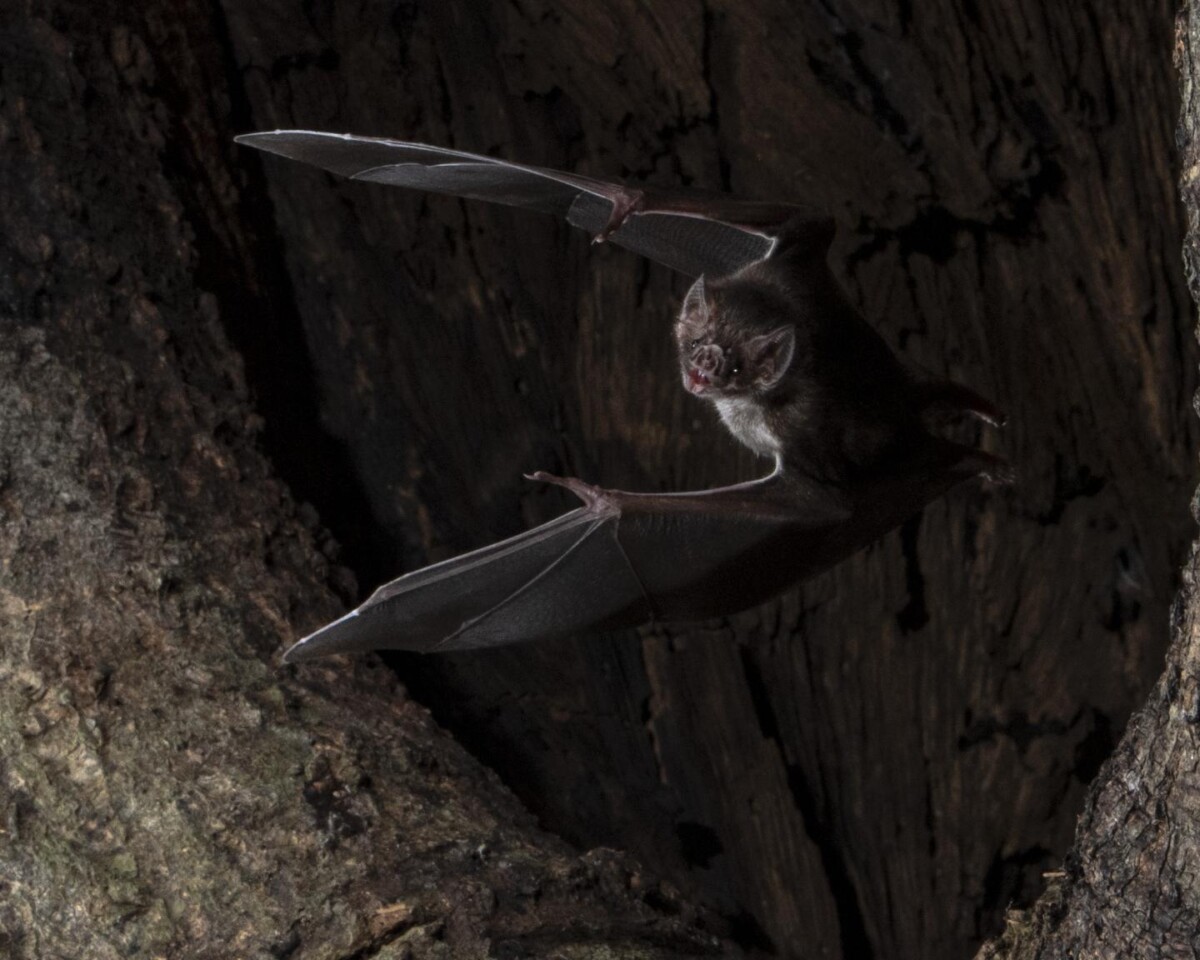They spend less time around their conspecifics, which means that the disease is less likely to spread.
During the corona crisis, we are urged to keep as much distance from others as possible. In this way we ensure that the corona virus spreads less easily. But people aren’t the only ones to ‘social distancing‘ to do. Also in the animal kingdom this tactic is through, for example among vampire bats.
Social distancing
When a pathogen spreads across a population, changes in social behavior can also alter the spread of the disease. When healthy animals are kept away from a sick one, the transmission speed can decrease. Some insects – such as bees – self-isolate when they are sick or become – slightly more harsh – expelled from the colony by other bees. But a simpler mechanism can also ensure that a sick animal is less likely to infect its peers. When you are sick, you often sleep more and move less. This disease caused ‘social distancing‘that does not require cooperation from others, we see in many animal species in the animal kingdom.
Vampire bat
Researchers inquired a new study wonder if also vampire bats social distancing to do. Since the outbreak of the coronavirus, bats have been cast in a bad light. We know that many viruses that can potentially kill humans can also affect bats. For example, bats are carriers of the Ebola virus, but also of rabies (rabies) and various coronaviruses, possibly including SARS-CoV-2. The team wanted to know how vampire bats behave when they are sick and whether, for example, they spend less time around their peers. The researchers had previously seen this behavior in the laboratory. But do wild vampire bats exhibit the same behavior?
Experiment
The researchers captured 31 adult female vampire bats from a hollow tree in the beautiful archaeological site of Lamanai located in the Central American country of Belize. They then randomly injected half of the captured bats with the substance lipopolysaccharide, which causes a strong immune response. The other fifteen bats were given a saline injection. The bats were tagged and then released into their hollow tree. “These follow-up tags gave us the opportunity to map the social behavior of these bats from hour to hour and even minute to minute,” says study leader Simon Ripperger. For three days, the researchers followed the animals closely and observed changes in their behavior.
Sick
The researchers came to a striking discovery. Because compared to the ‘healthy’ bats that only received a saline injection, the ‘sick’ bats spent less time with group mates. On average, a sick bat saw four congeners less than a healthy one. The chance that the latter spent time with a group member was around 49 percent, while this percentage was much lower for sick bats: only 35 percent. In addition, sick bats spent nearly half an hour less time with others. In short, even vampire bats do so when they are sick social distancing.
It means that social distancing probably an effective method of suppressing a pathogen. And that is of course very relevant, especially now that the second corona wave has broken out. An asymptomatic carrier who is not aware that he has the virus, can still come into contact with many people and thus still transmit the virus. In order to limit that chance as much as possible, the researchers warn that preventive measures, such as social distancingWashing hands, wearing face masks, testing, and isolating yourself when you are sick are critical.
–
POPULAR ON SCIENTIAS.NL
Keep amazed ✨
Receive the most beautiful space photos and interesting popular science articles every Friday. Get the free Scientias Magazine together with 50,000 others.
–


